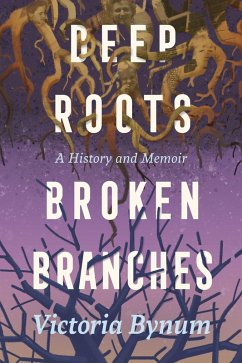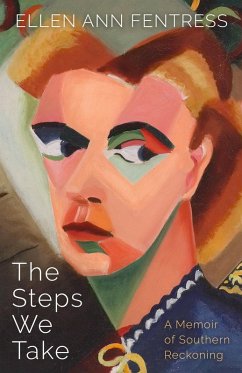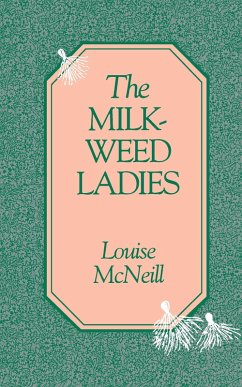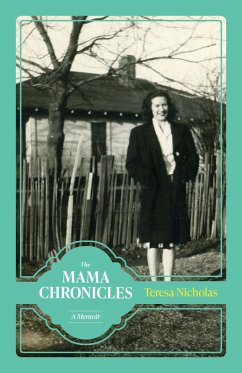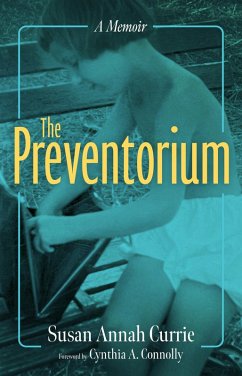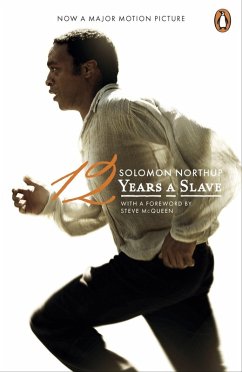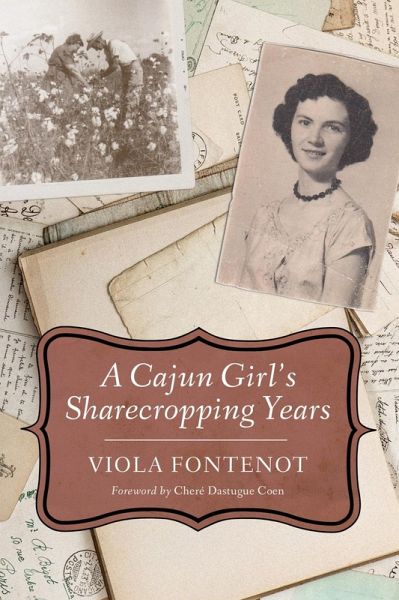
A Cajun Girl's Sharecropping Years (eBook, ePUB)

PAYBACK Punkte
7 °P sammeln!
Winner of the 2019 Humanities Book of the Year from the Louisiana Endowment for the HumanitiesToday sharecropping is history, though during World War II and the Great Depression sharecropping was prevalent in Louisiana's southern parishes. Sharecroppers rented farmland and often a small house, agreeing to pay a one-third share of all profit from the sale of crops grown on the land. Sharecropping shaped Louisiana's rich cultural history, and while there have been books published about sharecropping, they share a predominately male perspective. In A Cajun Girl's Sharecropping Years, Viola Fonten...
Winner of the 2019 Humanities Book of the Year from the Louisiana Endowment for the Humanities
Today sharecropping is history, though during World War II and the Great Depression sharecropping was prevalent in Louisiana's southern parishes. Sharecroppers rented farmland and often a small house, agreeing to pay a one-third share of all profit from the sale of crops grown on the land. Sharecropping shaped Louisiana's rich cultural history, and while there have been books published about sharecropping, they share a predominately male perspective. In A Cajun Girl's Sharecropping Years, Viola Fontenot adds the female voice into the story of sharecropping.
Spanning from 1937 to 1955, Fontenot describes her life as the daughter of a sharecropper in Church Point, Louisiana, including details of field work as well as the domestic arts and Cajun culture. The account begins with stories from early life, where the family lived off a gravel road near the woods without electricity, running water, or bathrooms, and a mule-drawn wagon was the only means of transportation. To gently introduce the reader to her native language, the author often includes French words along with a succinct definition. This becomes an important part of the story as Fontenot attends primary school, where she experienced prejudice for speaking French, a forbidden and punishable act. Descriptions of Fontenot's teenage years include stories of going to the boucherie; canning blackberries, figs, and pumpkins; using the wood stove to cook dinner; washing and ironing laundry; and making moss mattresses. Also included in the texts are explanations of rural Cajun holiday traditions, courting customs, leisure activities, children's games, and Saturday night house dances for family and neighbors, the fais do-do.
Today sharecropping is history, though during World War II and the Great Depression sharecropping was prevalent in Louisiana's southern parishes. Sharecroppers rented farmland and often a small house, agreeing to pay a one-third share of all profit from the sale of crops grown on the land. Sharecropping shaped Louisiana's rich cultural history, and while there have been books published about sharecropping, they share a predominately male perspective. In A Cajun Girl's Sharecropping Years, Viola Fontenot adds the female voice into the story of sharecropping.
Spanning from 1937 to 1955, Fontenot describes her life as the daughter of a sharecropper in Church Point, Louisiana, including details of field work as well as the domestic arts and Cajun culture. The account begins with stories from early life, where the family lived off a gravel road near the woods without electricity, running water, or bathrooms, and a mule-drawn wagon was the only means of transportation. To gently introduce the reader to her native language, the author often includes French words along with a succinct definition. This becomes an important part of the story as Fontenot attends primary school, where she experienced prejudice for speaking French, a forbidden and punishable act. Descriptions of Fontenot's teenage years include stories of going to the boucherie; canning blackberries, figs, and pumpkins; using the wood stove to cook dinner; washing and ironing laundry; and making moss mattresses. Also included in the texts are explanations of rural Cajun holiday traditions, courting customs, leisure activities, children's games, and Saturday night house dances for family and neighbors, the fais do-do.
Dieser Download kann aus rechtlichen Gründen nur mit Rechnungsadresse in A, D ausgeliefert werden.






